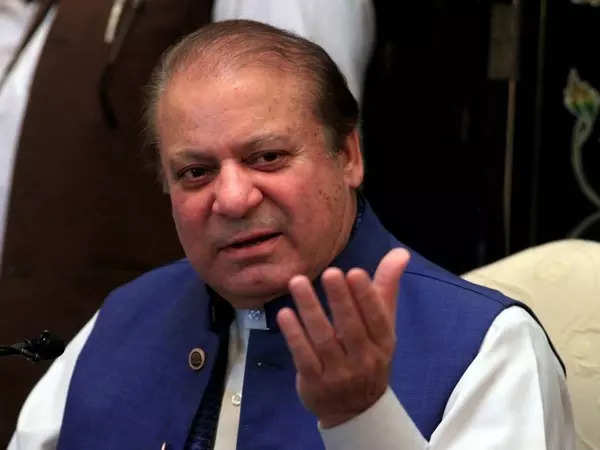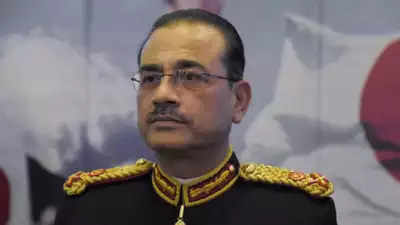Court Warns Pak Police Over Action Against Baloch Protestors
A top Pakistan high court on Thursday warned the police against the illegal arrest of any Baloch protestor in the capital against the forced disappearances and extrajudicial killings in the restive province.

A top Pakistan high court on Thursday warned the police against the illegal arrest of any Baloch protestor in the capital against the forced disappearances and extrajudicial killings in the restive province, underlining that a peaceful demonstration was a constitutional right of every citizen.
The Islamabad High Court (IHC) Chief Justice Aamer Farooq was hearing a case about the arrests of protestors coming from the Balochistan province to Islamabad to raise their voice against the rampant human rights violations in the resource-rich province.
Clashes occurred as police intercepted protestors heading towards the Islamabad Press Club late on Wednesday night and arrested dozens of them.
The IHC summoned Islamabad Inspector General (IG) Akbar Nasir Khan, who duly appeared and was grilled by the chief justice about arrests of women protestors.
The chief justice asked about the status of the 86 marchers named in the petition, who were arrested during the protest and said that no one should be stopped from peace protests.
"Let them protest who have come to protest. It's their constitutional right," he said.
He also asked for the total number of people arrested so far.
The IG defended the police action and said that protestors were heading towards the susceptible Red Zone area, housing key state buildings and diplomatic missions.
Asserting that the protestors also attacked the police, he said, "Police only took action in self-defence as the protestors refused to go away." He also said that the law enforcement agencies were trying to clear the blocked roads by forcing the protesters away from the main road.
The protestors were represented by human rights lawyer Imaan Mazari, who told the court that force was used against the protesters, who were also baton-charged.
"Peaceful protesters were also detained, which is illegal," Mazari said, adding that the protesters included women and children.
Adjourning the hearing, the court sought a report regarding the number of people detained, remanded in judicial custody, and released by Friday.
Later, Privatisation Minister Fawad Hasan Fawad, at a press conference in Islamabad, said that all women and children arrested following police action against Baloch protesters had been released.
"On the directives of the premier, it was decided that all women and children, without any exceptions, were released. Further, all men who have been identified have also been released," he said.
He said that the government negotiating team met the protesters, who said they did not intend to create a law and order situation. "As I said before, our conviction is that the protesters from Balochistan were not responsible [for this]," he said.
The minister added that local elements were responsible for creating a law and order situation.
Prime Minister Anwaar-ul-Haq Kakar had formed a five-member committee headed by Fawad to meet the protestors and address their grievances. He also said that those who do not seriously violate the law will also be released.
Meanwhile, the Human Rights Commission of Pakistan expressed concern over the arrest of protestors. "Numerous women protesters have reportedly been arrested and separated from their male relatives and allies," it said in a post on X.
The commission said that the treatment of Baloch citizens exercising their constitutional right to peaceful assembly is inexcusable. "It also reflects how little the state thinks of the protesters' demand that their right to life and liberty be upheld. All those detained must be released unconditionally," it added.
The human rights watchdog asked the government to urgently organise a delegation to meet the protesters and give their legitimate demands a fair hearing.
(Except for the headline, this story has not been edited by NDTV staff and is published from a syndicated feed.)



































![Safari Thorium Neo 8-Wheel Luggage Set Trolley Bags (Set of 3) at just Rs. 5,599 [MRP 29,100]](https://savefree.in/uploads/images/202409/image_870x580_66f63845060f0.webp?#)












![Handmade Brown Mango Wood Chopping Board At just Rs. 89 [MRP 599]](http://savefree.in/uploads/images/202303/image_870x580_641bf7e9c2206.jpg?#)


